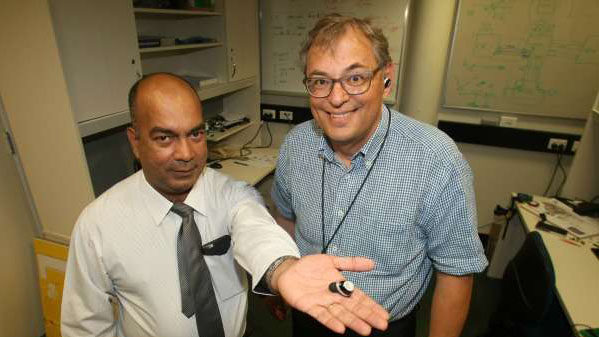These headphones will only drown out the sounds you tell it to
Or just eliminate traffic noise without putting yourself in harm's way

Sign up for breaking news, reviews, opinion, top tech deals, and more.
You are now subscribed
Your newsletter sign-up was successful
A team of researchers have announced a pair of bluetooth-enabled earbuds that are capable of allowing the listener to choose which sounds from the outside world pass through the headphone's noise cancellation.
The tiny hearing device, named the IQbuds, are the result of a collaboration between Curtin University and Nuheara and will be able to stream all of your standard audio types from a connected device.
The researchers behind the device claim that the signal processing capabilities will allow it to block out some background noise while allowing useful sounds to pass through.
It's not hard to imagine the possibilities such a system could offer to the user. You may wish to tune out the noise of passing traffic when you're using the headphones on a walk, but then allow the sound of pedestrian crossings to pass through the earbuds to allow yourself to cross the road safely.
With the number of pedestrians killed or injured while wearing headphones having tripled between 2006 and 2012, this is the sort of technology that could potentially save lives if it ends up being widely adopted.
Another potential use for the technology could be to filter out the low rumbling of a train carriage while still allowing for the more high pitched sounds of the announcements to broadcast through the earbuds to let you know that the train is reaching your stop.
It's not yet clear how the user will select which sounds they want to block, and which sounds they want to be able to hear.
Sign up for breaking news, reviews, opinion, top tech deals, and more.
One audio expert we spoke to suggested that the IQbuds could work by acting as an equaliser on live sounds, lowering the volume on certain frequencies while allowing others to pass through.
The "Cocktail Party Effect"
This raises the question of whether the device will be able to overcome the so-called "cocktail party effect" where the human ear needs to 'tune in' on a specific sound and 'tune out' others, despite these sounds operating on the same frequency level. We've asked the research team for comment and will update this story if we hear more.
Project lead Professor Sven Nordholm said that he also hopes the technology will go on to be used in the hearing aid market. "We especially expect the device will be beneficial to people with the beginnings of hearing loss," he said.
Hearing aids typically overcome the cocktail party effect problem by offering a very directional sound amplification, so you can hear the person in front of you without the noise from the rest of the room getting in the way, however this method is not without its problems.
Interestingly the researchers claim the device will also be able to mute sounds on a directional basis, allowing the user to turn their head to hear additional sounds.
The team have ambitions to eventually have the device be compatible with emerging virtual reality technologies.
Via Phys.org

Jon Porter is the ex-Home Technology Writer for TechRadar. He has also previously written for Practical Photoshop, Trusted Reviews, Inside Higher Ed, Al Bawaba, Gizmodo UK, Genetic Literacy Project, Via Satellite, Real Homes and Plant Services Magazine, and you can now find him writing for The Verge.